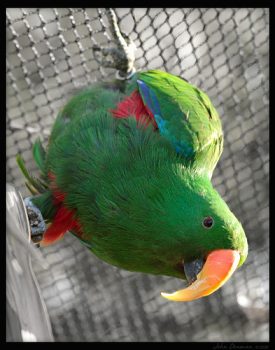Archive for 'Grammar'
Greek personal pronouns quiz Posted by Ourania on Mar 7, 2016
Some of my students find the personal pronouns a challenging grammar topic. In this post there are two quizzes for intermediate students. Quiz 1 Complete the sentences using α, β, or γ. I saw him yesterday: [α. Τον β. Του γ. Αυτός] είδα σήμερα. I met her at Miranda’s party: [α. Αυτή β. Την γ…
Use of Greek: the Genitive Case Posted by Ourania on Feb 9, 2016
A few months ago, I wrote a post about the accusative case (αιτιατική). In this post there are examples on the use of the genitive case (γενική). The genitive case can be used to show: Possession: Αυτό είναι το βιβλίο του Νικου. This is Nikos’ book. The subject of an action (subjective genitive): Όλοι μιλούσαν…
Examples on the use of Greek verbs Posted by Ourania on Feb 1, 2016
The use of the conjunctions να (to), ότι and πως (that) confuses the learners. Some verbs are followed only by να, some others are followed only by ότι or πως and some others can be followed by the three conjunctions. In this post there is a list of some common verbs and examples of their…
Use of the Greek articles Posted by Ourania on Jan 27, 2016
One of the challenges beginners and intermediate students face is the right use of the definite and the indefinite articles. When it comes to articles, Greek is very particular. For example, the definite article is always used with people names, in the nominative, genitive and accusative cases: ο Πέτρος. / Το βιβλίο του Πέτρου. /…
Greek numbers from 100 to 1000 Posted by Ourania on Jan 13, 2016
Greek numbers from 100 to 1000 can be hard to use because they are not invariable. In this post there are some examples of their use and a multiple choice exercise for those who want to practice. Pronunciation 100 εκατό 100 101 εκατόν ένα 101 110 εκατόν δέκα 110 The number 100 is εκατό. The final -ν…
About feminine nouns Posted by Ourania on Nov 30, 2015
Most feminine nouns which end in –η form the plural in –ες: η κόρη, οι κόρες (daughter, daughters), η φίλη, οι φίλες (friend, friends), η ανάγκη, οι ανάγκες (need, needs) etc. However, some of them have their own declination. They form two groups: 1. They are stressed on the penultimate syllable. Examples: Αυτό το κλειδί…
Changing the vowels Posted by Ourania on Nov 25, 2015
The differences between the written and the oral speech are a source of confusion. Beginners learn that the word “and” is “και”. However, in texts written in in formal language και is often written as κι. In oral speech the vowels are can be omitted and replaced by an apostrophe. In this post we will…









